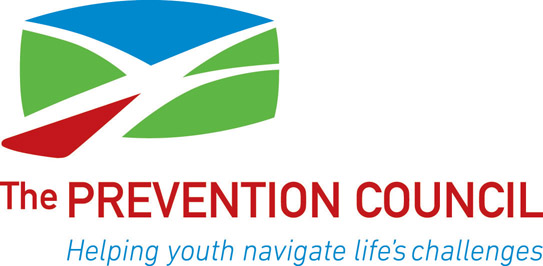Friday, May 17, 2013
The Saratogian
By Patty Kilgore
Counseling Services Director
The Prevention Council
Editor’s note: Throughout this week, The Saratogian has collaborated with the Prevention Council as part of National Prevention Week. This week-long observance was an opportunity to raise awareness about substance abuse and mental health issues, to promote prevention efforts and to educate our local communities about the factors that influence substance use.
Prevention Week celebrates the idea that everyone has a role to play in prevention. In order to be most effective, prevention should be woven into all aspects of young peoples’ lives.
It’s not easy being a teen. As we well know, adolescents face many challenges as they navigate the teen years. Their bodies are changing, their hormones are surging, their friendships are evolving. They are scrutinizing themselves and each other like never before. Their schoolwork is also getting increasingly demanding as they start thinking about life after high school. There’s an awful lot weighing on these kids’ minds.
Coupled with hormonal changes, teens are more prone to depression and likely to engage in risky and thrill-seeking behaviors than either younger children or adults. That’s why it’s so important that the adults in their lives meet the mental, social, and emotional health needs of this age group in positive and healthy ways.
It comes as no surprise to parents that teens can become particularly emotional over even the smallest problems. It often seems that teens overreact or get overly dramatic with extreme highs and lows in any given situation. But what may seem extreme to an adult is actually quite normal for a teen. Teens feel emotions much more intensely than adults — as much as two to four times stronger. Couple this with very little experience or context for such emotions and it can appear a teen is out of control.
He or she is actually navigating new territory, striving for independence, and developing important interpersonal relationships. Life is becoming more complex, stresses are increasing and at the same time teens are expected to be making some difficult life decisions. These circumstances are enough to overwhelm anyone.
All too frequently, a teen will choose to self-medicate difficult feelings with alcohol or another drug, or use another self-destructive behavior such as cutting, to cope. It’s critical that parents keep communicating with their teens through these rough patches. Provide a safe place to vent feelings, and if necessary, seek professional help for these behaviors. Substances may mask the intensity of the feelings temporarily, but the price might be a long-term addiction problem and a lack of healthy coping skills.
Teens make a lot of mistakes as they discover who they are. One of the hardest things you’ll do as a parent is to allow your child to fail and let him or her experience the natural consequences of their mistake. But healthy coping, decision making and social skills are developed as much through failure as through success. Our instinct is to protect our children from all hurt and pain, but sometimes we need to provide support on the sidelines while allowing them to experience these difficult life lessons.
Because of the intensity of a teen’s feelings, give your teen some space after a particularly difficult emotional time. Allow emotions to subside before starting a discussion. Encourage your teen to find a healthy outlet for his or her emotions, such as journaling, art projects, music or physical activity.
Adolescence is a time of self-discovery and identity development. Teens may try on many different identities as they navigate these years. Don’t fret through this process. Exploring different styles, personalities and friendships encourages healthy development. Just keep in mind, even with these changes, at his or her core, your teen is still the child you know and love.
It’s ironic, but true: parental support and guidance is most important at the very time teens seem to be pushing parents away. Muster the strength to push back. Listen to your teen and really hear what he or she is saying. Validate teens’ feelings while guiding them to find solutions. Parents are the key to keeping adolescents on a healthy path to adulthood.
